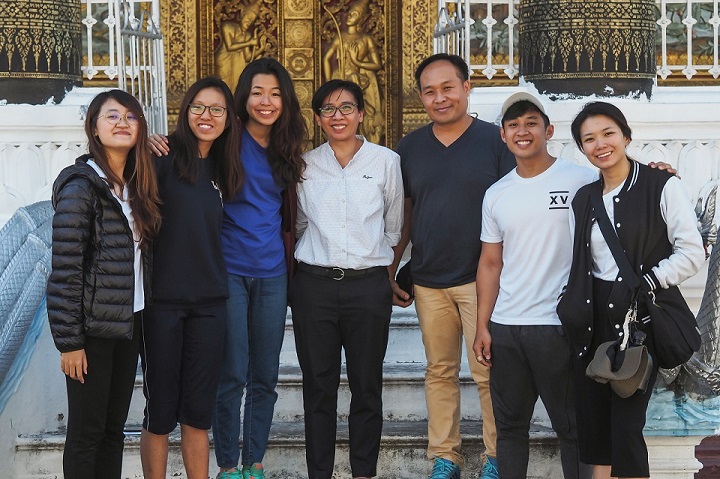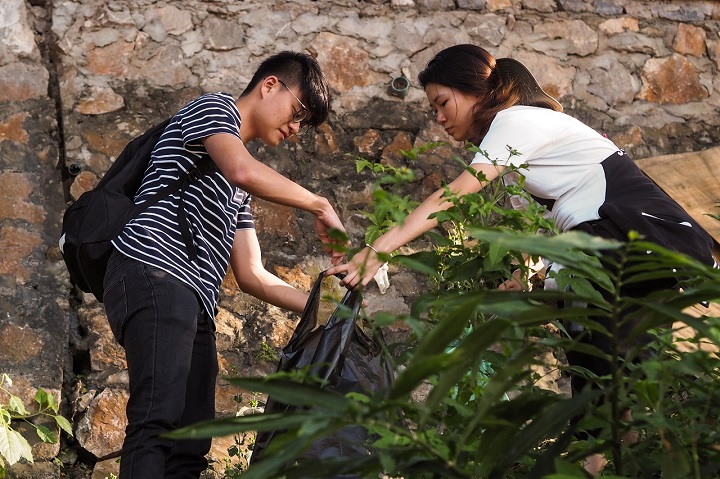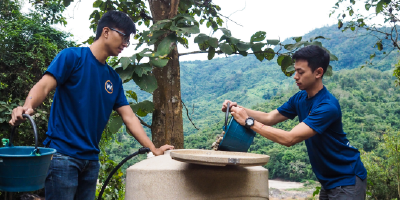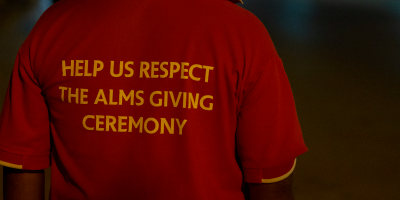Video by Chin Gon Yew, Jerome Wong, Jesslyn Chen, Ong Yun Qi and Zeen Tng
LUANG Prabang — the golden city of Laos — continues to enchant visitors since opening its doors to tourism in the 1980s. Tones of reverence and captivation continue to linger, fortifying the sleepy town far upcountry on the banks of the Mekong as a cultural haven.
But today, the flavour of Indochina it once carried seem to have been blemished — and tourism is not to be blamed.
Most of the environmental issues in Luang Prabang stem from the locals’ lack of education, said Mr Somsack Sengta, a native of the city.
He also heads Trash Idol, a volunteer group formed in 2014, which aims to look into the city’s environmental issues and improve its cleanliness.
Mr Sengta said: “The youth are used to the conveniences of today, like using plastic bags over baskets that the older generation used. What they lack is awareness, not the motivation to do good for the environment.”
Raising awareness among youths
Thus, Trash Idol is trying to focus its efforts on educating the youths. However, the group does not receive any funding from the government and are limited in resources.
“We have very little capacity, so this is the only way we can start. Later on, we will develop an education programme. We will go to schools to explain and show pictures of the environmental issues to the students,” he added.

Other initiatives
Apart from raising awareness, the group also organises environmentally-friendly initiatives such as monthly clean-up sessions in the city and cycling activities to promote environmental sustainability.
These sessions highlight that more can be done to improve the cleanliness and habits of locals.
For example, a result of a litter-picking session by the Mekong River, which lasted less than half an hour, produced as many as four heavy bags of rubbish — filled with plastic bottles, food packaging and even baby diapers.

Trash Idol’s co-founder Ms Alicith Phengsavanh said: “We think that trash around Luang Prabang comes from the tourists, but we need to stop thinking that. The people in Luang Prabang are the ones throwing the rubbish.”
Protecting Laos
Although Laos is one of South East Asia’s fastest growing economies1, a fifth of its population still lives below the poverty line2.
While there may be a short-time benefit of economic growth, climate change has also caused Laos to face some of the world’s worst natural disasters in recent years.
As the country still lacks the resources to deal with environmental conservation, Trash Idol serves as a reminder for Laotians to protect their homeland.
Ms Phengsavanh shared that some 1,500 locals turned up to participate in a clean-up initiative on World Cleanup Day on 15 Sep last year.
“I can say that Laotians are more understanding and care about the environment now,” she said. ∎
References
1 The World Bank in Lao PDR. (n.d.). Retrieved from https://www.worldbank.org/en/country/lao
2 Asian Development Bank. (n.d.). Retrieved from https://www.adb.org/countries/lao-pdr/poverty



 Wee Kim Wee School
Wee Kim Wee School